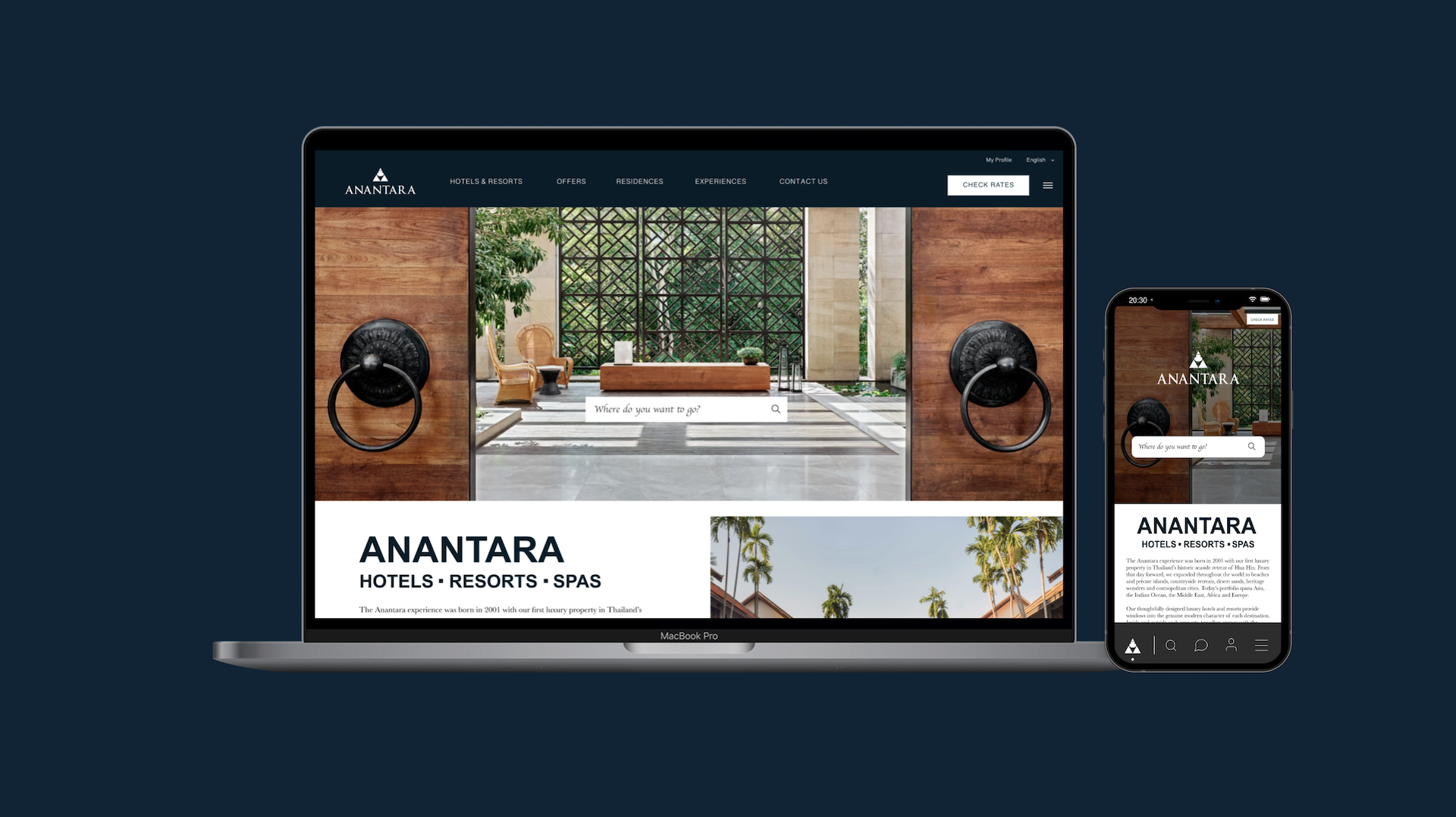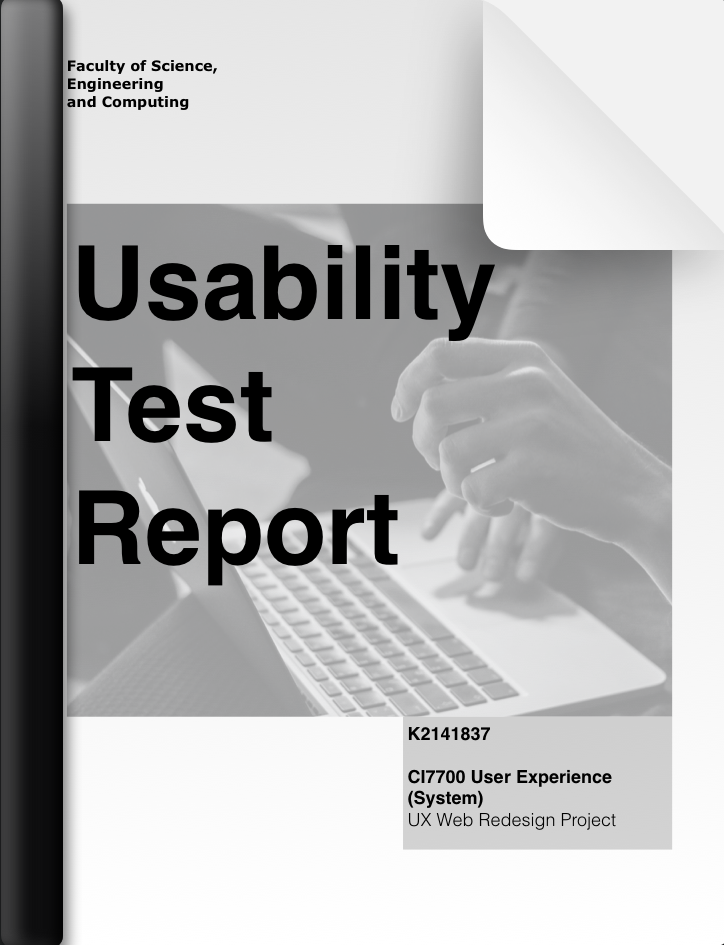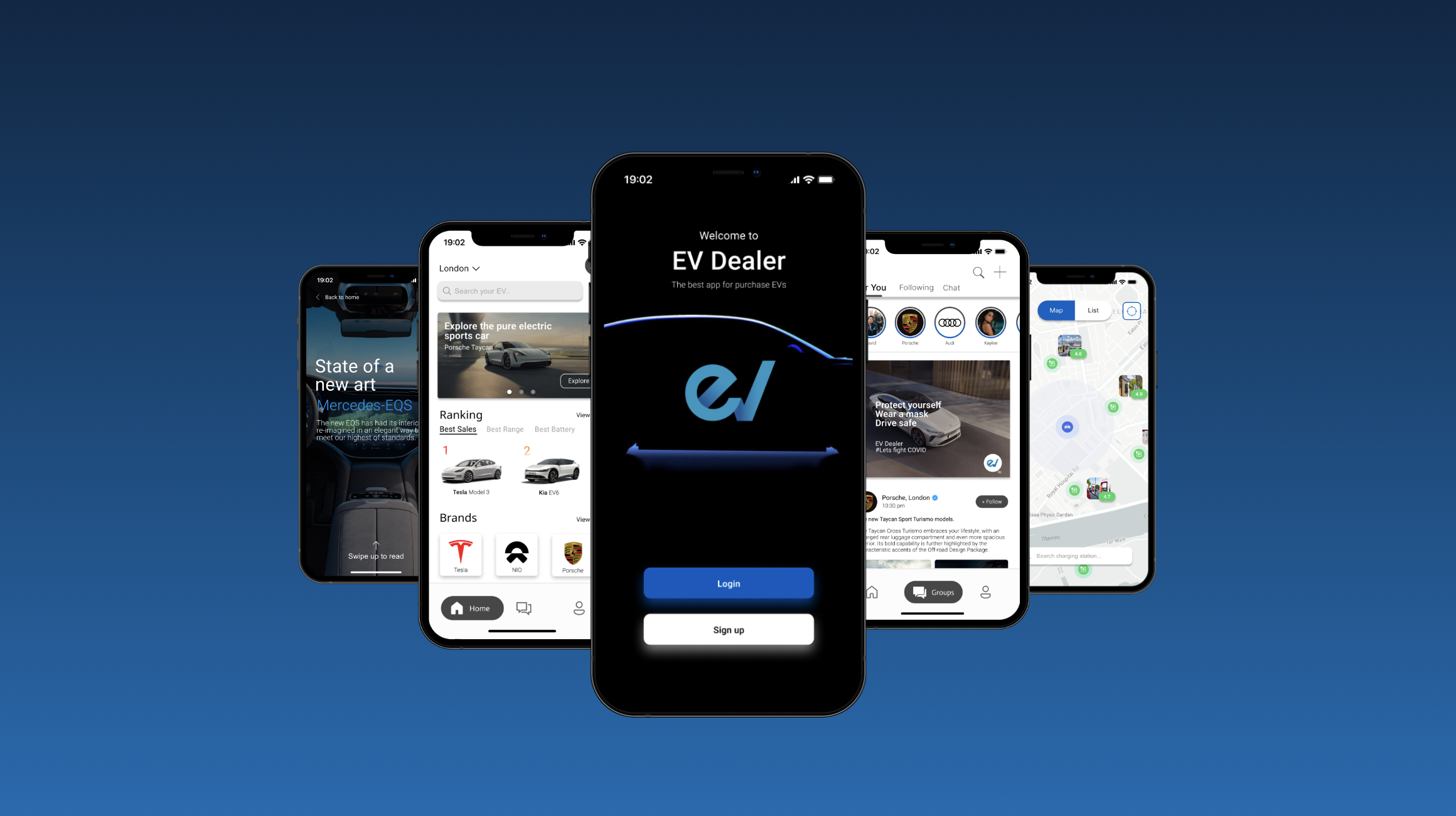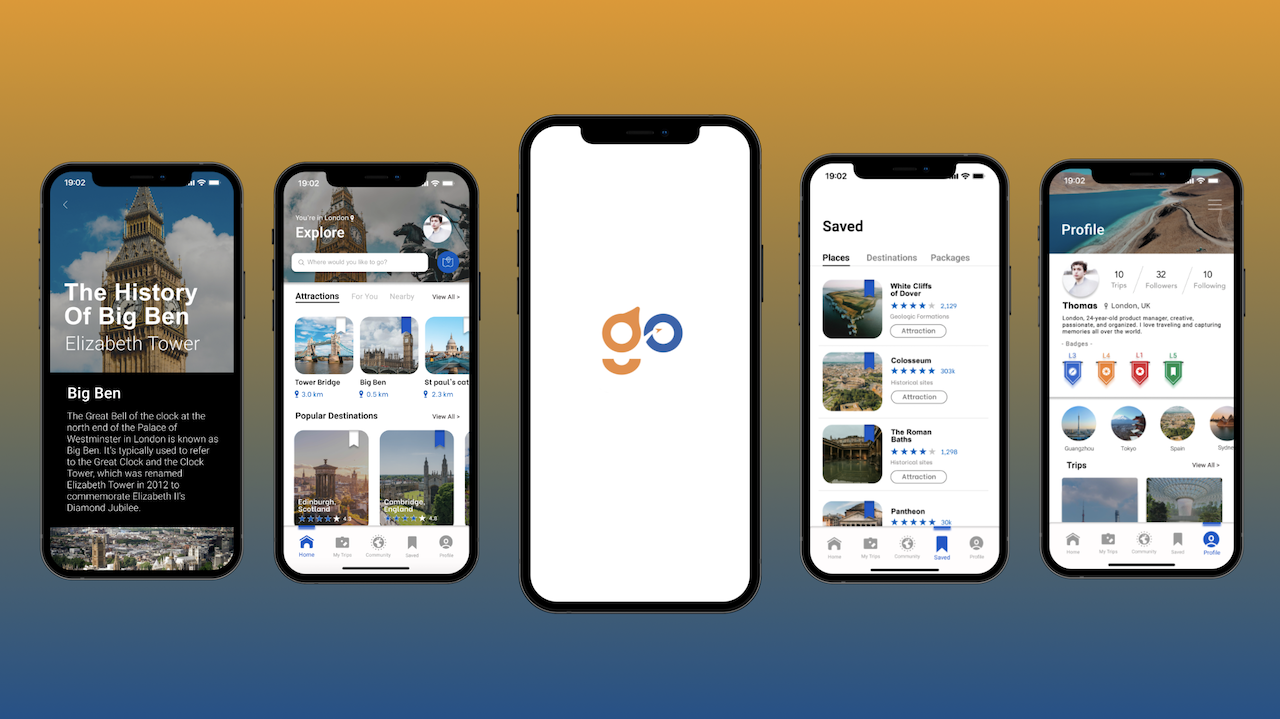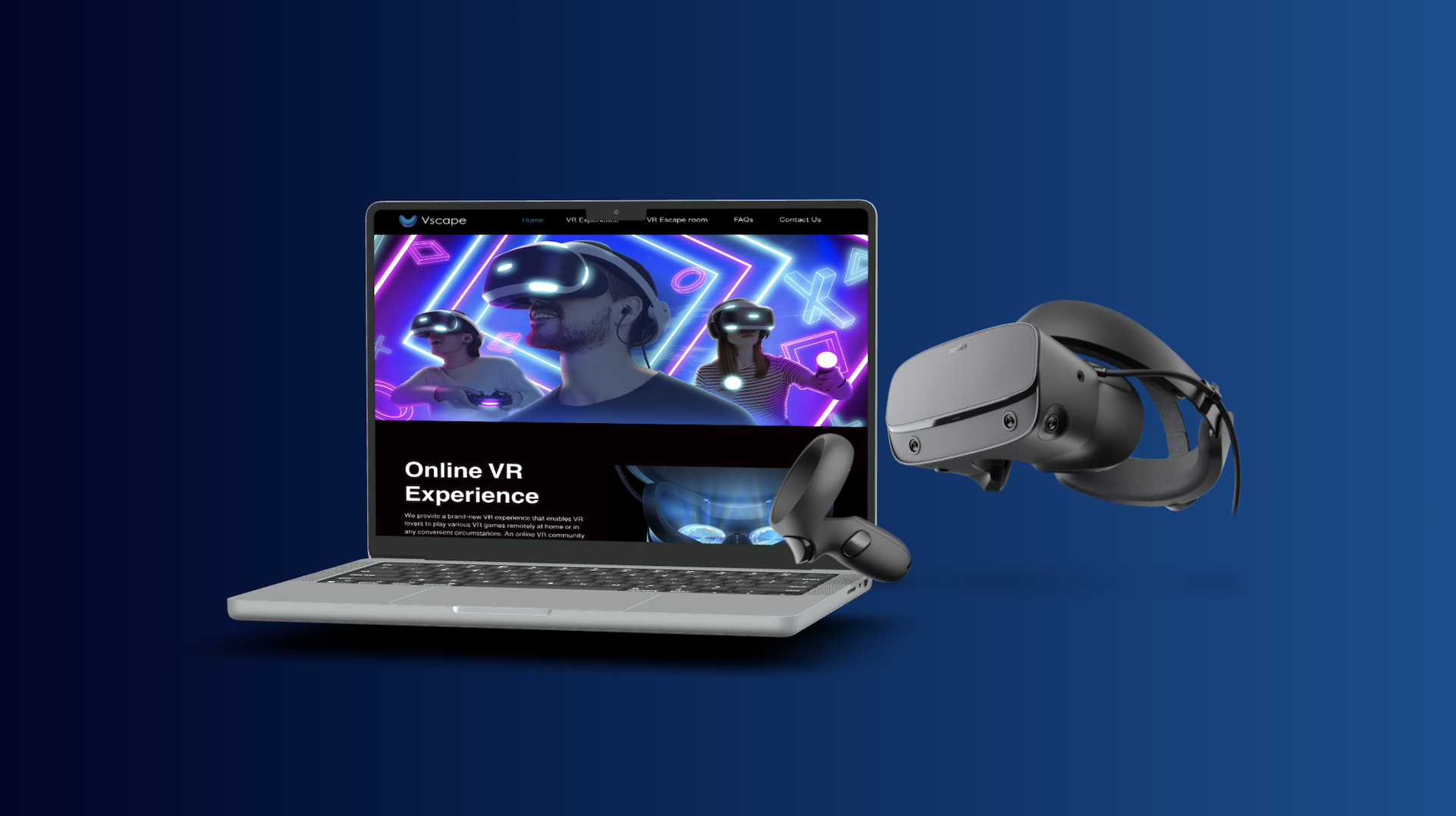ANANTARA
Web Redesign
Project Name
User Experience Design (System)
Roles
UX Designer & Researcher
Timeframe
3 Months
Tools



EXECUTIVE SUMMARY
The primary aim of the study is to improve the user experience of Anantara.com and bring it up to the standard of Industry benchmarks. Anantara has built a complex website with a variety of contents and services. It is essential to evaluate usability and improve the web’s user experience so that the company can maintain its competitiveness with the market and attract more users to book their properties. I am aiming to redesign the website by solving all usability issues and creating a mobile application that facilities users to book hotels and resorts more efficiently via Anantara.
PROJECT BACKGOUND
The global hospitality industry has experienced dramatic growth in the last two decades; also, with the increase of tourism and hotel properties, people now are becoming more and more critical and choosy about their hotel and resort choices. Therefore, for most hotel companies, “it is not enough to simply open their doors for business and expect their property to fill up” (Bryan Bailey). In order to be competitive, hoteliers must ensure they are offering the best services at the right time to attract the right guest.
Website - ANANTARA
anantara.com - the website is operated by the Anantara company, a hotels resorts industry which founded in 2001 by William Heinecke. Anantara is operating more than 40 properties in 20 different countries across Asia, Europe, the Middle East, and Africa.

PROJECT AIMS
Anantara has built a very complex website with a variety of contents and services. It is essential to evaluate usability and improve web’s user experience so that the company can maintain their competitiveness with the market and attract more users to book their properties.
The aim of the evaluation is to study and improve the user experience of Anantara.com.
1. The primary objective of the study is to improve the user experience of Anantara.com and bring it up to standard of Industry benchmarks. The objectives will be achieved by: i) measuring usability, ii) analyzing usability issues, and iii) providing redesign recommendations.
2. Evaluating system’s navigation findability, AI, and practicality is also the main goal of the study. This will be covered by the following tasks: find and book a hotel or resort, view detailed information, compare accommodations, etc.
3. Answering these questions: “Whether it’s easy and quick to book a hotel through anantara.com and rosewoodhotels.com” and “How is the over experience of using the Anantara.com?”. To explore that, methods such as, repeated measures, comparison, and address unique were implemented.
USABILITY TEST
In experiencing anantara.com for the first time, the majority of the participants found various functions of the website inconsistency and unnecessarily complex. The complicated web navigation caused a lot of confusion for users, especially when they were finding information about activities and special promotions. Also, most users were frustrated while booking the properties due to inconsistent information and content.
Furthermore, according to the post-test questionnaire, 6/8 of the participants stated that they prefer using rosewoodhotels.com rather than anantara.com to book hotel and resort. The majority mentioned that the website of Rosewood hotels had better navigation and its booking process is more clear and straightforward.
The average SUS score is 38.75 (Grade F), which is classified as a “poor” and “not acceptable” usability score. The highest score of the session is 50.0 and the lowest is 17.5.

PERSONA
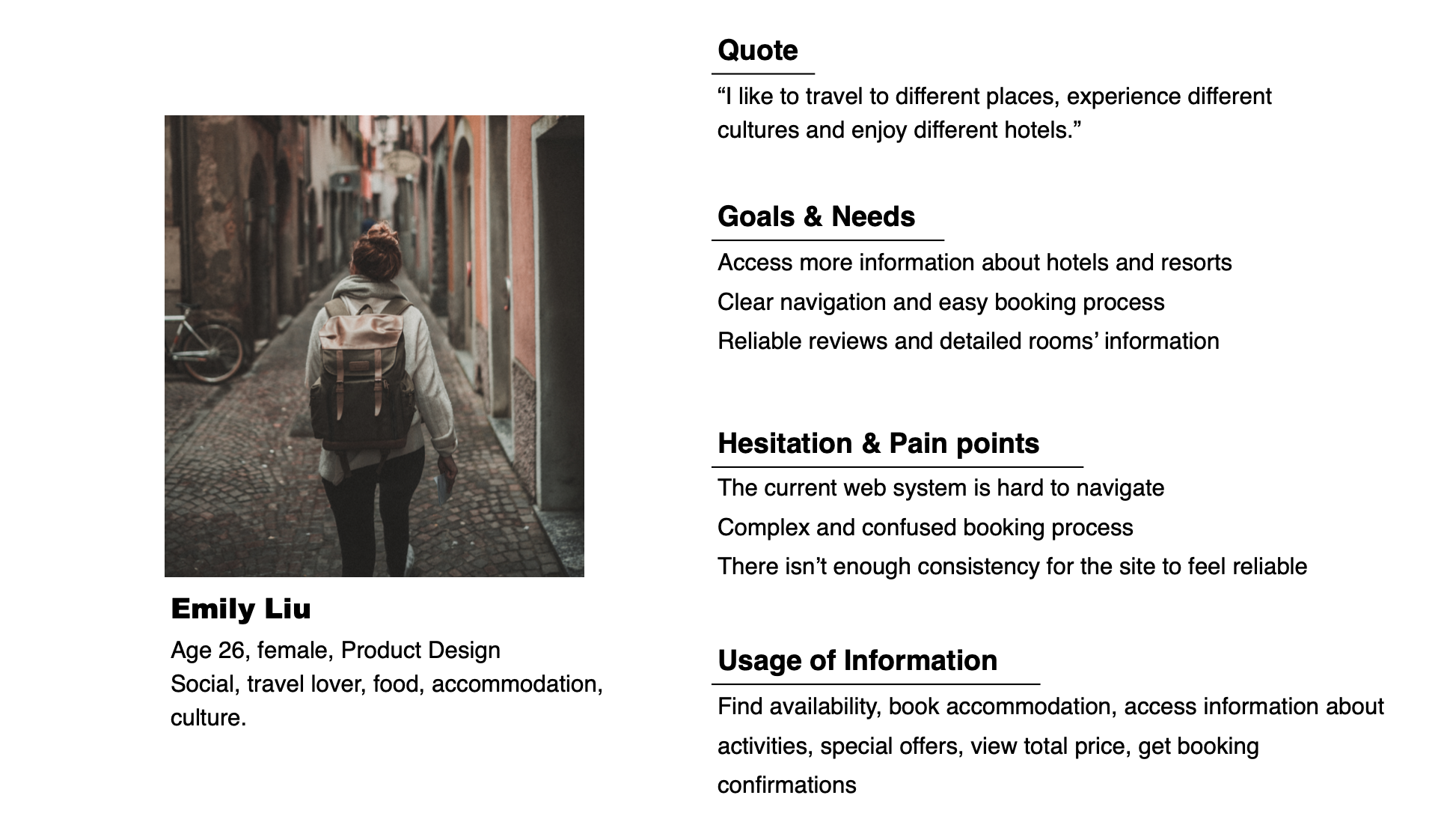
HIERARCHICAL TASKS ANALYSIS
The HTA graph visually achieves the specific task of “finding and booking a villa resort for two adults and one child.” There are two decomposable processes which are “Identify potential destination” and “Identify potential accommodation”.
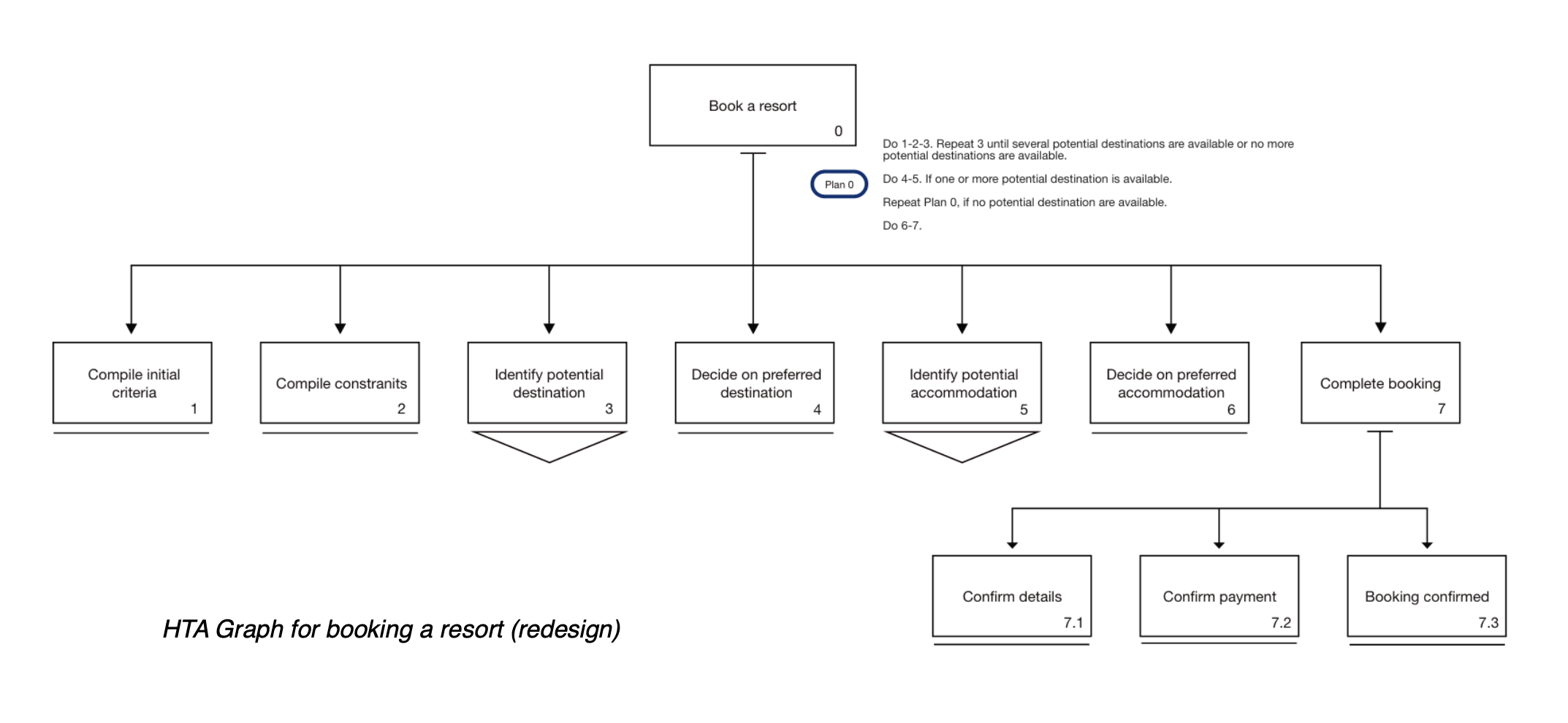
OBJECT ANALYSIS

INFORMATION ARCHITECTURE
“Card sort is a method that uncovers how the target audience’s domain knowledge is structured, and it serves to create an information architecture that matches users’ expectations.” - Katie Sherwin, 2018
Close card sorting method was implemented in this study to organize and assign all the content and information properly.Participants were asked to organize all the cards independently via using OptimalSort. Due to the widespread of Covid-19, we are unable to access face-to-face card sort sessions with our participants; therefore, using OptimalSort to operate our study is more appropriate and safe.
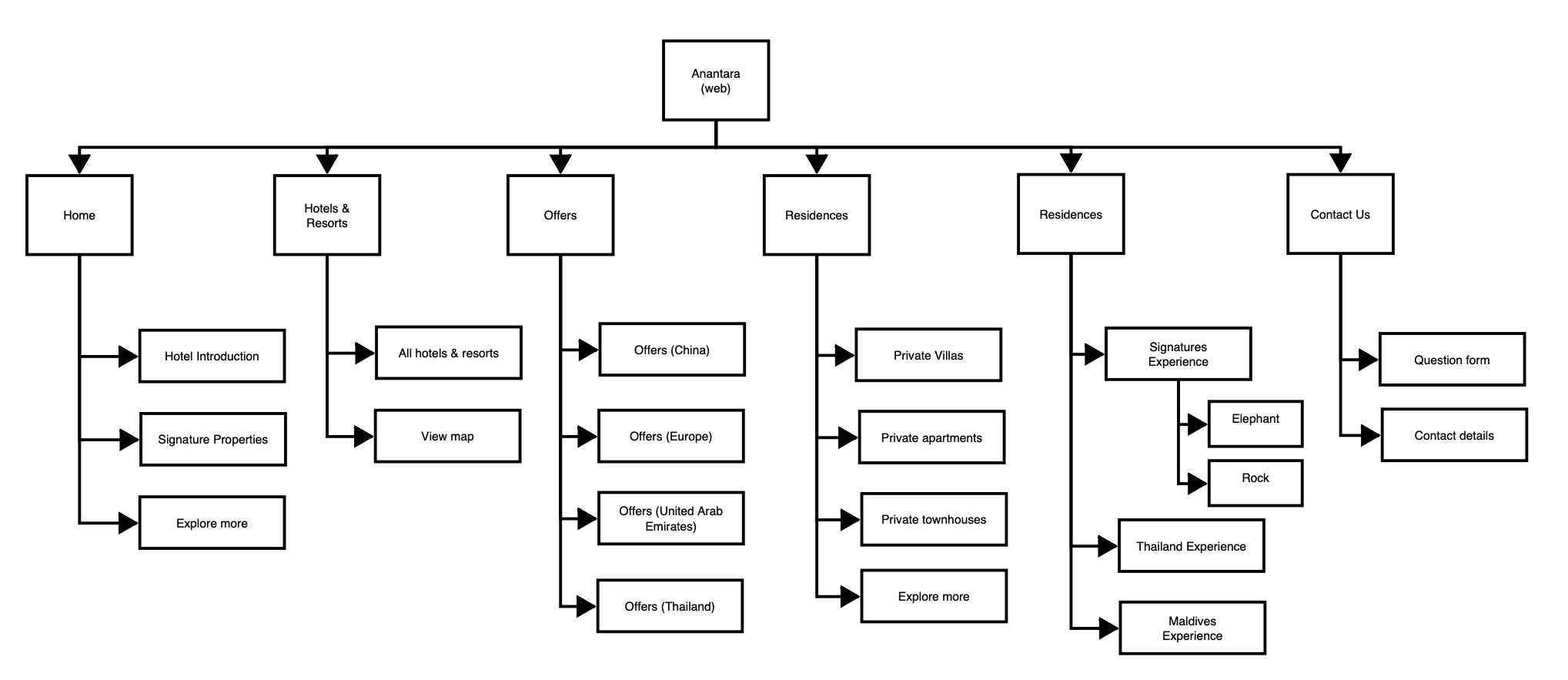
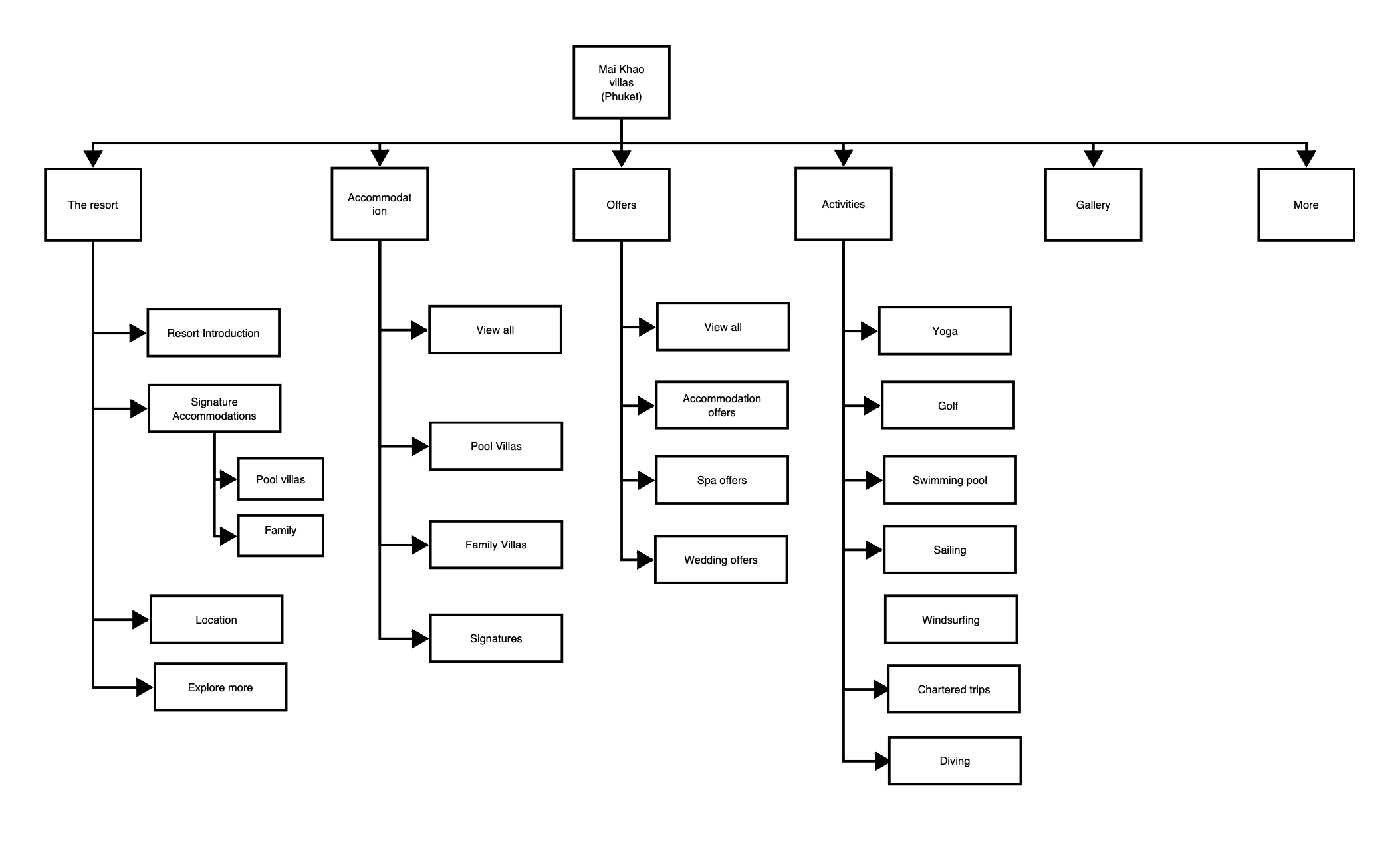
SITEMAP

STYLEGUIDE
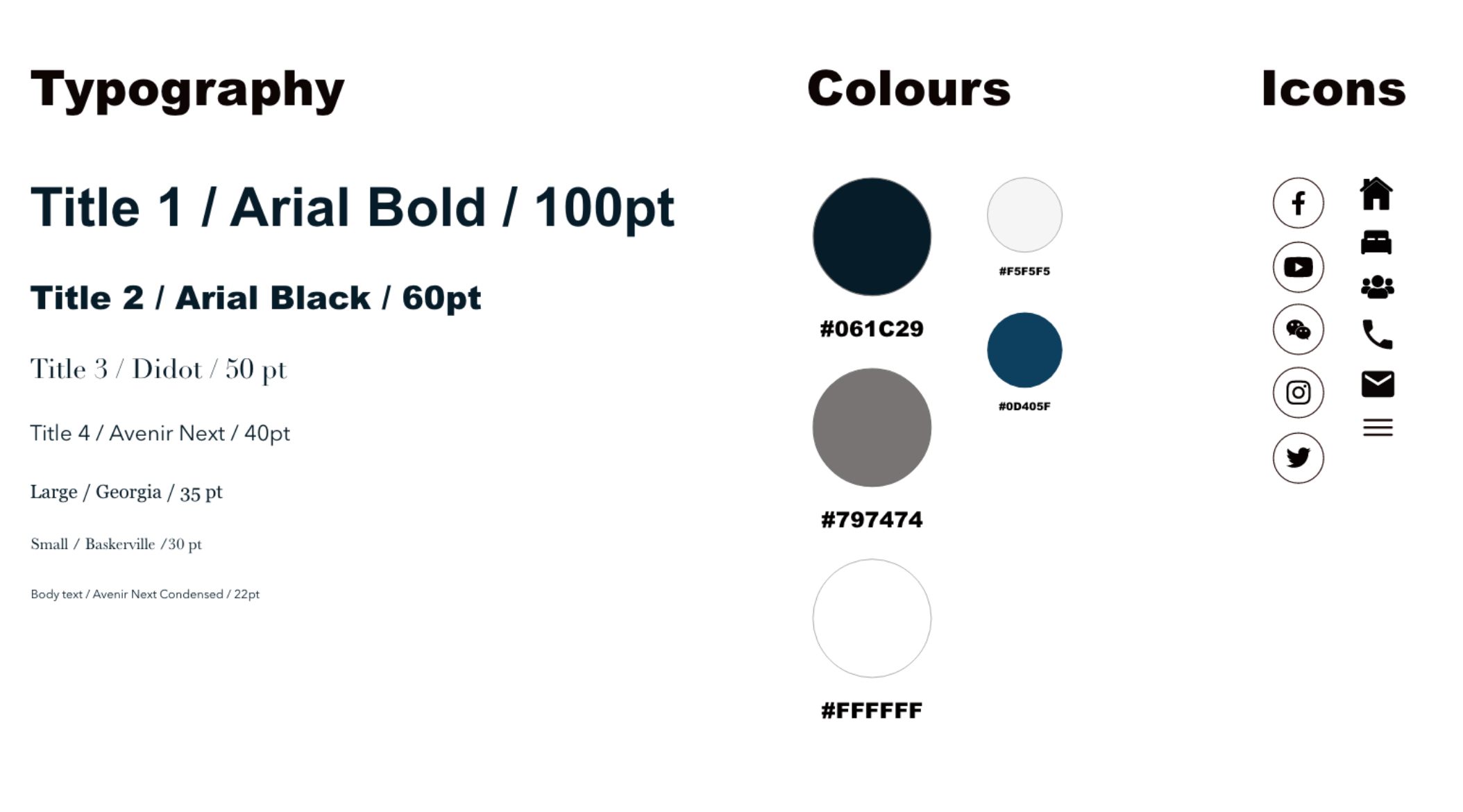
PROTOTYPE
DISCUSSION
I followed four design principles while creating my prototypes, which are “appropriate feedback, clear information visibility, easy navigation, and simple structure.”
Providing continuous feedback is significant when users are browsing the sites. It makes users feel confident to take further actions and let them know if their interactions are successful. In my prototypes, the selected topics will be underlined and become bold after users click on the page.
Presenting clear information and easy navigation will make users stay longer on the sites. The original websites have very complex navigation; they provide too many topics in the navigation bar, making users feel tired and difficult to navigate or reach specific content. I redesigned the website with a concise navigation structure and clear information visibility by reducing the number of topics and providing more white spaces between different content sections.
Future works
1. Conduct usability testing.
2. Add more information about SPA and wellness services.
3. Allow users to view their profile and bookings.
4. Create pages that allow users to book SPA treatment.
5. Insert more features and interactions.
